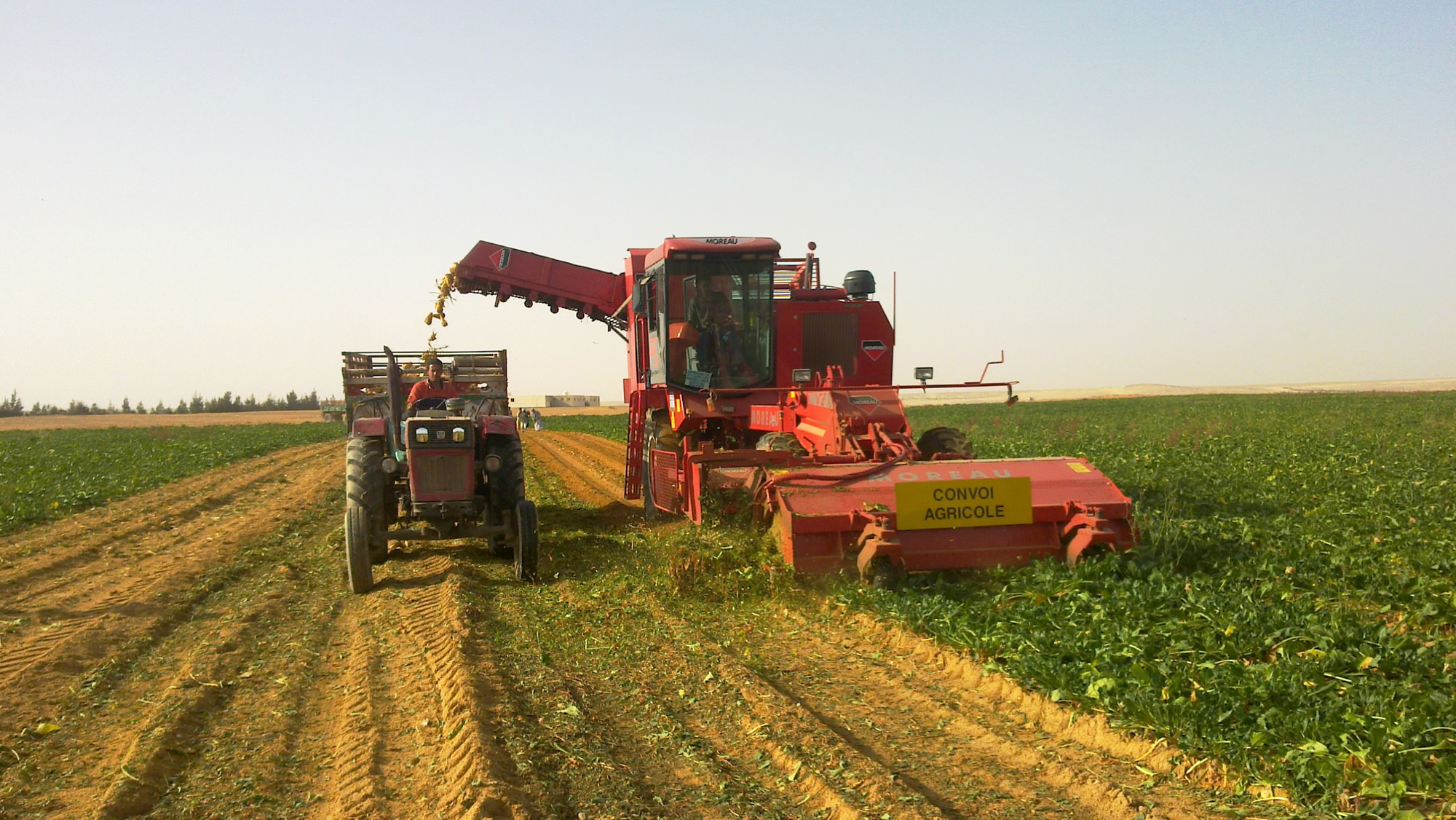Food & Climate
The Ministry of Agriculture is working to reduce the interest rate for Egypt’s agricultural projects, while the Ministry of Environment is working to develop climate adaptation projects in the field of agriculture; to be able to attract the necessary financing from banks and the private sector, in addition to international development banks, which may lead to a repetition of the scenario of renewable energy projects in the country.
Egypt has succeeded in attracting large financing from within and outside the country for renewable energy projects, such as the giant Benban station in Aswan Governorate in the south of the country.
The Minister of Environment, Dr. Yasmine Fouad, said that obtaining diverse financing for climate adaptation projects in the field of agriculture reduces financing risks.
She added, during a meeting with the Minister of Agriculture in the country, Alaa Farouk, that one of the fruits of Egypt’s hosting of the COP27 climate conference was Egypt’s launch of the Energy, Food and Water Nexus as an approach to link mitigation projects with adaptation; by linking energy projects that attract investment with agriculture and water projects, which encourages investment in them.
The Minister stressed Egypt’s aspiration to mobilize funding from development partners to implement projects that contribute to addressing challenges in the three sectors (energy, agriculture, and water) to achieve the maximum benefit from funding resources, according to a statement received by the “Food & Climate” platform today, Saturday, December 28, 2024.

Improving Livelihoods in Siwa Oasis
Egyptian Minister of Environment, Dr. Yasmine Fouad, said that Egypt is working to develop climate adaptation projects in the field of agriculture to attract investments from various public, private, and international entities, which contributes to achieving food security.
The value of government agricultural investments amounted to 116.6 billion pounds ($2.3 billion) in the budget for the last fiscal year (2023/2024), according official data.
These investments aimed to enhance the productivity of agricultural crops by rates ranging between 5% and 10%.
The two ministers discussed current projects being implemented jointly, in addition to other proposed projects, including: the second phase of ecosystem-based solutions for rehabilitating pastures, and working to select a project for funding from donors such as the Green Climate Fund, and implementing it through an international agency.
They also discussed the possibility of implementing a project that achieves climate adaptation in the agricultural sector, through planting resilient crops, and benefiting from agricultural waste to reduce emissions in a way that achieves mitigation.
Fouad monitored some of the proposed projects for the agricultural sector to benefit from increasing the funding available from the Adaptation Fund to $20 million, in its new funding cycle, to achieve climate adaptation in the agricultural sector.

During the previous cycle, the Fund financed the implementation of the Food Resilience Project in Upper Egypt in its first and second phases at a cost of $10 million in partnership with the World Food Programme. The implementation of the Climate Change Adaptation Project to improve livelihoods in Siwa Oasis is currently being studied.
Providing funding for Egypt’s agricultural projects
The Egyptian Minister of Agriculture and Land Reclamation, Alaa Farouk, revealed climate adaptation projects in the agricultural sector, saying that the executive plan related to confronting climate change and combating desertification is within the work programs of the Ministry of Agriculture in cooperation with various sectors, within the framework of a 3-year government program; between 2024 and 2026, especially with regard to the impact of the challenge of climate change and desertification on the agricultural sector.
And includes a number of main tracks, including: enhancing ecological agriculture in resilience, facilitating advisory services and climate-smart risk management, and reshaping food systems, including the components of each track, activities, indicators, timetable and available investment opportunities.
The Minister of Agriculture pointed to the possibility of implementing renewable energy projects in agriculture; by replacing the energy source in extracting well water and desalinating seawater alike.
The ministry will work to reduce the interest rate for Egypt’s agricultural projects to encourage farmers to implement them. The ministry is currently preparing a roadmap for using desalinated water in agriculture, especially since it will provide benefits to the agricultural sector, and also enhance industry by utilizing the resulting salts.
The Egyptian Central Bank has repeatedly raised interest rates over the past two years, due to price increases and targeting inflation. The lending interest rate is 28.25%.
Farouk explained that utilizing solar energy to extract well water is a quick success and will provide economic and environmental benefits by saving the use of oil products.
As part of the ministry’s efforts to implement investment ideas in sustainable agriculture, it is currently collecting the necessary studies and a fertilizer map for lands, listing cultivated and fragmented lands, and working to list solar stations used in agriculture, with the aim of implementing pilot fields and model villages to implement integrated sustainable agricultural projects.

And it is enhancing the environmental and industrial dimension by recycling the resulting agricultural waste in a way that achieves the unification of holdings and increases land and provides a sustainable business model, and repeats the experience of utilizing rice straw in the production of compost.

